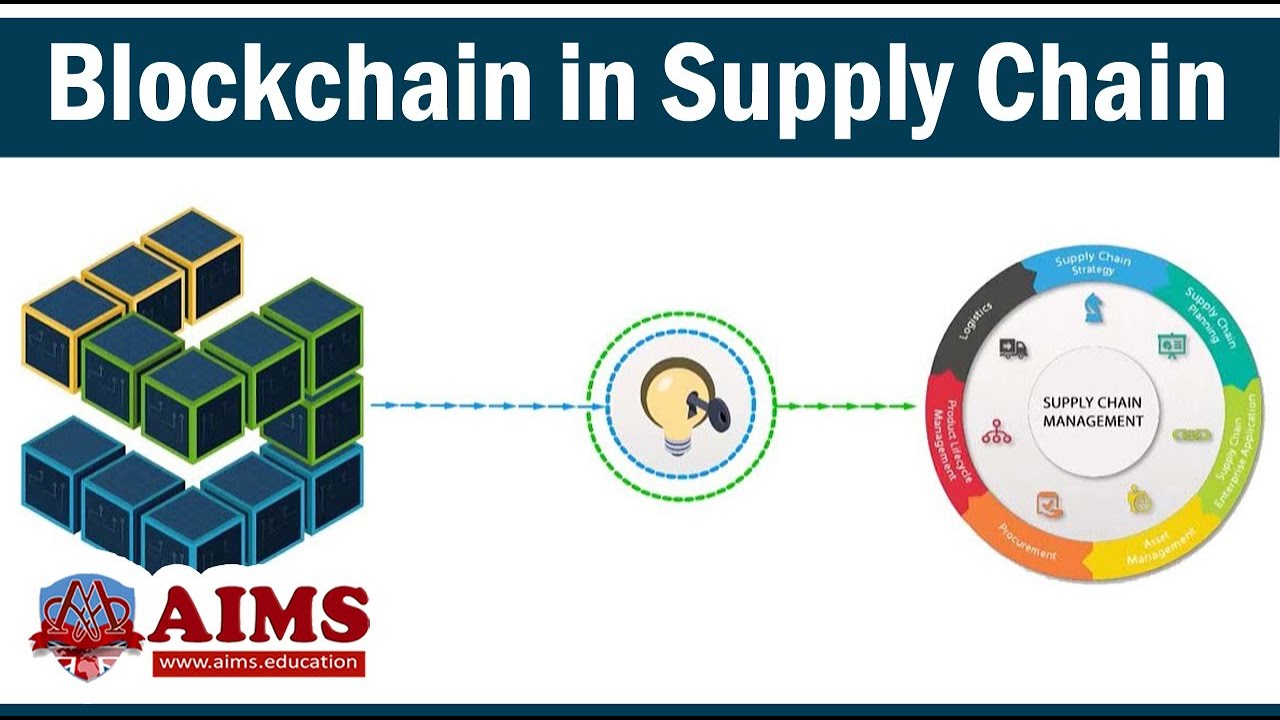How Blockchain Can Revolutionize Supply Chain Management

- Understanding the Basics of Blockchain Technology
- Challenges in Traditional Supply Chain Management
- Benefits of Implementing Blockchain in Supply Chain
- Real-world Examples of Blockchain in Supply Chain Management
- Enhancing Transparency and Traceability with Blockchain
- Future Trends and Opportunities in Blockchain Supply Chain Management
Understanding the Basics of Blockchain Technology
Blockchain technology is a decentralized, distributed ledger system that securely records transactions across a network of computers. Each transaction is stored in a “block” that is linked to the previous block, forming a chain of blocks – hence the name “blockchain.” This technology ensures transparency, security, and immutability of data, making it an ideal solution for supply chain management.
One of the key features of blockchain technology is its ability to create a tamper-proof record of transactions. Once a block is added to the chain, it cannot be altered without the consensus of the network participants. This feature ensures the integrity of the supply chain data, reducing the risk of fraud, errors, and discrepancies.
Another advantage of blockchain technology is its transparency. All participants in the supply chain have access to the same information, creating a shared view of the entire process. This transparency helps to improve trust among stakeholders, streamline communication, and facilitate collaboration.
Blockchain technology also enhances security by encrypting data and providing secure access controls. Each transaction is verified by multiple participants in the network, making it nearly impossible for malicious actors to manipulate the data. This increased security can help prevent counterfeiting, theft, and other supply chain risks.
In conclusion, blockchain technology has the potential to revolutionize supply chain management by providing a secure, transparent, and efficient way to track and trace products throughout the supply chain. By leveraging blockchain technology, companies can improve visibility, reduce costs, and enhance trust among stakeholders.
Challenges in Traditional Supply Chain Management
Traditional supply chain management faces numerous challenges that hinder efficiency and transparency in the process. One of the main issues is the lack of real-time visibility into the movement of goods from one point to another. This can lead to delays in identifying and resolving any issues that may arise during transportation. Additionally, the reliance on manual record-keeping and paper-based documentation can result in errors, fraud, and inefficiencies in the supply chain.
Another challenge in traditional supply chain management is the complexity of multi-party transactions. With multiple stakeholders involved in the process, coordination and communication can become cumbersome and time-consuming. This can lead to delays in decision-making and increased costs for all parties involved. Moreover, the lack of trust between these stakeholders can further exacerbate these challenges, as each party may have different incentives and priorities.
Furthermore, traditional supply chain management is vulnerable to security threats and counterfeiting. With limited visibility and traceability, it can be difficult to verify the authenticity of products and ensure that they have not been tampered with or compromised in any way. This can pose serious risks to both consumers and businesses, as counterfeit products can damage brand reputation and jeopardize consumer safety.
In conclusion, the challenges in traditional supply chain management highlight the need for a more efficient and transparent system. By leveraging blockchain technology, supply chain management can be revolutionized to address these issues and create a more secure, reliable, and cost-effective process for all parties involved.
Benefits of Implementing Blockchain in Supply Chain
Implementing blockchain technology in supply chain management offers a wide range of benefits that can revolutionize the way businesses operate and collaborate. Some of the key advantages of integrating blockchain in the supply chain include:
- **Increased** transparency: Blockchain provides a decentralized and immutable ledger that allows all parties involved in the supply chain to have real-time visibility into transactions and data. This transparency helps to **enhance** trust among stakeholders and reduce the risk of fraud and errors.
- **Enhanced** security: The cryptographic algorithms used in blockchain technology ensure that data stored on the blockchain is secure and tamper-proof. This **helps** to prevent unauthorized access, data breaches, and cyber attacks, **making** the supply chain more secure.
- **Improved** traceability: With blockchain, each transaction or event in the supply chain is recorded and timestamped, creating a transparent and auditable trail of goods from their origin to the final destination. This **enables** businesses to track and trace products in real-time, **helping** to streamline processes and reduce the risk of counterfeit goods.
- **Efficient** inventory management: By leveraging blockchain technology, businesses can **optimize** their inventory management processes by **automating** tasks such as order processing, invoicing, and payments. This **leads** to reduced costs, improved efficiency, and better inventory control.
- **Streamlined** collaboration: Blockchain facilitates seamless collaboration and information sharing among supply chain partners by providing a single source of truth for all parties. This **eliminates** the need for intermediaries and manual reconciliation processes, **resulting** in faster transactions and smoother operations.
Overall, the implementation of blockchain in supply chain management can bring about significant improvements in transparency, security, traceability, inventory management, and collaboration. By harnessing the power of blockchain technology, businesses can **transform** their supply chain operations and gain a competitive edge in today’s fast-paced and complex business environment.
Real-world Examples of Blockchain in Supply Chain Management
Blockchain technology has already started to revolutionize supply chain management in various industries. Here are some real-world examples of how blockchain is being utilized:
- **Food Traceability**: Companies like Walmart and Nestle are using blockchain to track the journey of food products from farm to table. This ensures transparency and helps in identifying and addressing any issues in the supply chain.
- **Pharmaceutical Authentication**: Pharmaceutical companies are using blockchain to verify the authenticity of drugs and prevent counterfeit products from entering the market. This helps in ensuring patient safety and maintaining the integrity of the supply chain.
- **Automotive Parts Tracking**: Automotive manufacturers are using blockchain to track the origin and authenticity of spare parts. This helps in reducing the risk of using counterfeit parts and ensures compliance with quality standards.
- **Cross-border Trade**: Blockchain is being used to streamline cross-border trade by digitizing and automating the documentation process. This reduces paperwork, minimizes delays, and improves the efficiency of international supply chains.
- **Waste Management**: Companies in the waste management industry are using blockchain to track the disposal and recycling of waste materials. This helps in promoting sustainability and ensuring proper waste management practices.
These examples demonstrate the diverse applications of blockchain in supply chain management and highlight the potential of this technology to transform the way businesses operate. By leveraging blockchain, companies can enhance transparency, traceability, and efficiency in their supply chains, ultimately leading to cost savings and improved customer satisfaction.
Enhancing Transparency and Traceability with Blockchain
One of the key benefits of implementing blockchain technology in supply chain management is the enhancement of transparency and traceability. By utilizing blockchain, companies can create a secure and immutable record of every transaction that occurs within the supply chain. This level of transparency allows for greater visibility into the movement of goods from their point of origin to the end consumer.
With blockchain, each transaction is recorded in a block that is linked to the previous block, creating a chain of information that is secure and tamper-proof. This ensures that all parties involved in the supply chain have access to real-time data that is accurate and trustworthy. As a result, companies can quickly identify and address any issues that arise, such as delays, fraud, or counterfeit products.
Furthermore, blockchain technology enables traceability by providing a complete history of each product as it moves through the supply chain. This can be particularly useful in industries where provenance is critical, such as food and pharmaceuticals. By scanning a QR code or RFID tag, consumers can access detailed information about the product, including where it was sourced, how it was produced, and when it was shipped.
Future Trends and Opportunities in Blockchain Supply Chain Management
The future of blockchain in supply chain management looks promising, with numerous trends and opportunities on the horizon. One key trend is the increasing adoption of blockchain technology by major players in the industry. Companies are recognizing the potential of blockchain to streamline operations, increase transparency, and reduce costs. This widespread adoption is expected to drive further innovation and development in the field.
Another trend to watch is the integration of Internet of Things (IoT) devices with blockchain technology. By combining these two technologies, companies can create a more efficient and secure supply chain system. IoT devices can collect real-time data on products as they move through the supply chain, which can then be securely stored and shared on the blockchain. This integration has the potential to revolutionize how supply chains are managed.
One of the key opportunities that blockchain presents in supply chain management is the ability to create more transparent and traceable supply chains. By recording every transaction on a decentralized ledger, companies can track products from their origin to their final destination. This level of transparency can help to prevent fraud, reduce counterfeiting, and ensure the quality and authenticity of products.
Blockchain also offers the opportunity to streamline supply chain processes through smart contracts. These self-executing contracts automatically enforce the terms of an agreement when certain conditions are met. By using smart contracts, companies can automate tasks such as payments, shipments, and quality control, reducing the need for intermediaries and speeding up the supply chain process.
Overall, the future of blockchain in supply chain management is bright, with numerous trends and opportunities on the horizon. By embracing this technology, companies can create more efficient, transparent, and secure supply chains that will drive innovation and growth in the industry.





